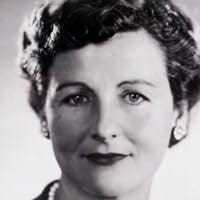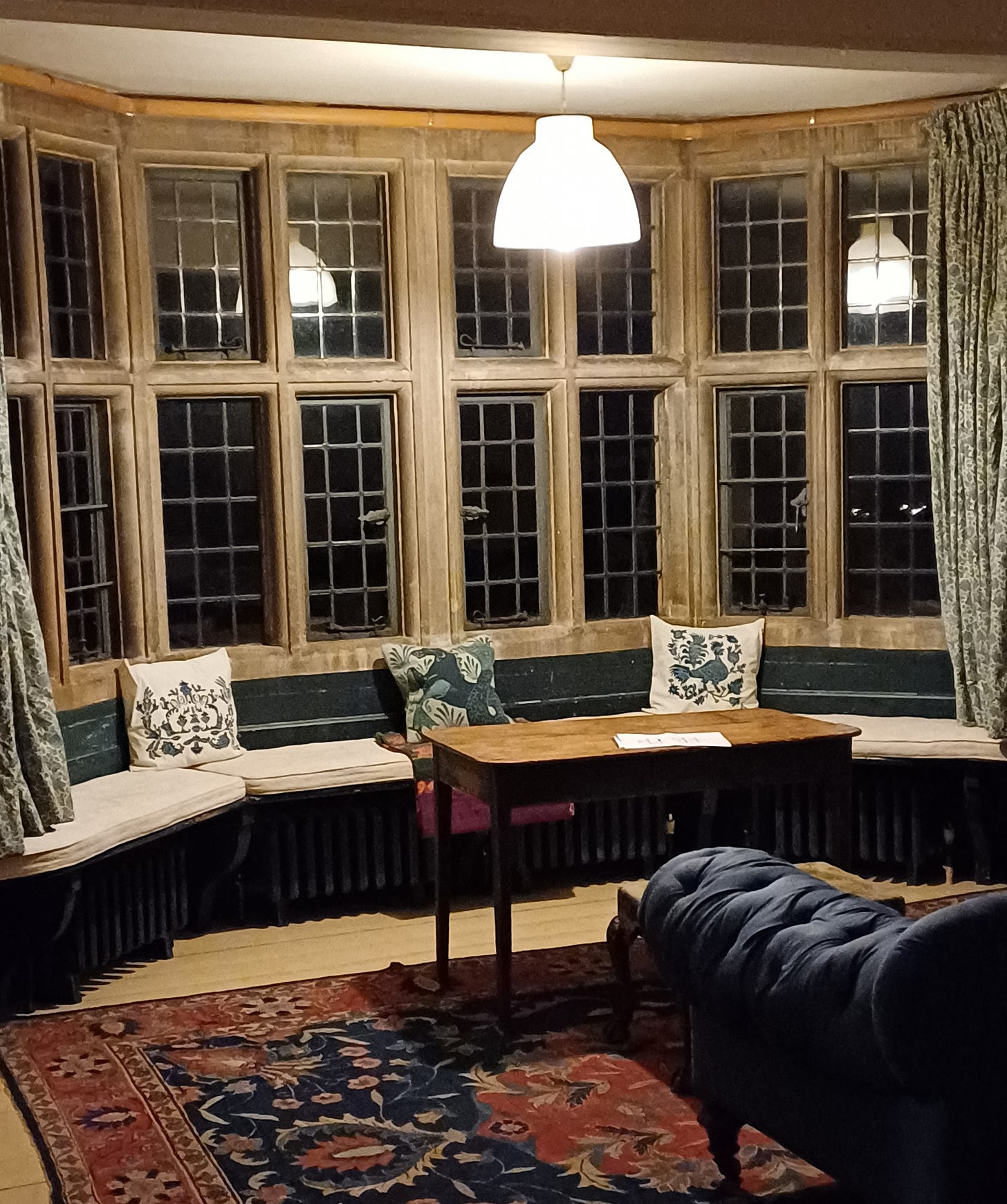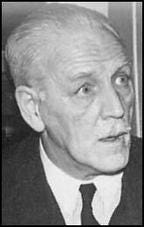I have a fancy for the less-loved literary work: I prefer King John to Henry V, and Mansfield Park to Pride and Prejudice. I think that the relatively unfamiliar The Sea Change may be Elizabeth Jane Howard’s best novel, I admire Agatha’s The Pale Horse more than Roger Ackroyd… and I adore Nancy Mitford’s last novel, the overlooked 1960 work Don’t Tell Alfred, about which one of her gossipy acquaintance said to me, when I was writing her biography: ‘I read it and thought oh, poor Nancy… it’s gone.’
Groupthink nonsense, in my view.
A review of my biog (in the days when I read such things) said that I was too kindly in my judgment upon Alfred and too hard on early novels such as Highland Fling and Christmas Pudding. Well: I disagree. I think that Nancy’s juvenilia is clever and fun but not quite her, ie written in a slightly strained school-of-Vile-Bodies voice, that of somebody trapped in a too too devastating party with a gang of Bright Young Things, secretly yearning to be middle-aged and assured and dressed by Dior. Indeed Don’t Tell Alfred is a homage to the sophisticated delights of life’s middle years.
Nancy is on my mind, always a good thing, because I have been doing some work for a forthcoming documentary series about the Mitfords - last December I was interviewed at Asthall (bedroom below), their beloved family home, which was so wonderful that I could hardly take it in until it was time to leave, and last week I was recording ‘pick-ups’, ie saying more cogently what I had waffled my way through first time around. Fun!
And then I was thinking - more specifically - about Don’t Tell Alfred, because I was reading some notes that I had made last year, at the Bodleian, from the papers of the film producer John Sutro. A lifelong friend of Nancy, Sutro was also close to her sister Diana; he was at Oxford with Diana’s first husband, and was asked by her second, Oswald Mosley, to stand as a candidate in the short-lived New Party. Sutro was Jewish, which was reason enough to make him wary of the couple - his papers contain a baffled attempt to understand them - yet the friendship with Diana endured.
She wrote to him after Nancy’s death from cancer in 1973, thus:
Darling John
Thank you so much for your dear letter. You knew how much she suffered & at the end one really longed for her to die. And yet of course one misses her all the time – because I still can’t connect her with illness or with being an invalid. Don’t you agree it was incredible somehow that she should have got so ill.
I needn’t tell you how dearly she loved you because you knew it. It’s 45 years since we all first knew each other, now long ago, another world.
Your brother is helping to adapt “Alfred” for the stage… I do hope it will succeed, a lovely idea.
I can find no record of this proposed theatrical version of Don’t Tell Alfred, and I assume that it never happened, although clearly somebody shared my view that the novel had merit. Nancy herself seems rather to have been in the anti camp. ‘I’ve just written the last words of my book’, she wrote to Evelyn Waugh. ‘It’s not good.’ After the twin towers of Pursuit and Cold Climate, then the slightly less-acclaimed The Blessing (subject of an earlier post), she had turned - with immense success - to historical biography, and written illuminating lives of Madame de Pompadour and Voltaire. ‘What can I write now?’ she asked a scholar friend. ‘No good saying a novel, I can’t any more.’
And the general view seems to be that she should have stuck to that, rather than producing Don’t Tell Alfred, with its odd seventies sitcom title and its cobbling together of elements from her greatest hits - Fanny as narrator, guest appearances from Uncle Matthew and Davey Warbeck - transported to the Parisian gratin setting of The Blessing: post-war France, pictured en rose.
The novel is a marivaudage, a series of incidents and a collision of infatuations, rather than a coherent whole. The plot - such as it is - was vaguely inspired by a real-life circumstance, the 1944-47 tenure of Duff and Diana Cooper at the British Embassy in the Rue du Faubourg St-Honoré, where Nancy had spent evenings of glittering fun (slightly tainted by the presence of the occasional collabo) during her first years in France. In her novel, Fanny’s husband, Alfred Wincham (first seen in The Pursuit of Love), is appointed British ambassador in France, and Fanny is haunted by the beautiful Lady Leone, ‘her brilliant predecessor’, who sets up an alternative court in the Embassy entresol. This is an exaggerated comedic take on the behaviour of Lady Diana Cooper. After the replacement of the Coopers by the far more correct Harveys, described by Nancy as ‘utter ghastly drear’ (an opinion she later revised), Diana and Duff moved to nearby Chantilly, rather than clean away as was the convention; although Diana did not behave with the flagrancy of Lady Leone, she was close enough to ensure that her dazzling presence continued to haunt the Embassy and invite Rebecca-like comparisons.
This is the set-up of Don’t Tell Alfred. Set against the rich demanding elegance of the Embassy - a symbol of the civilization that Nancy really loved, at least as much as she loved Gaston Palewski, the man who would never marry her - is the impoverished world of modernity. The book offers a fascinating interplay between these two societies, the declining old and the threatening new: an eternal battle, which in her light, deep, deceptive way Nancy presents as well as anybody. In an apparently casual throwaway, for instance, she describes how the Montdore Park Lane mansion, whose grandeur is part of the comfortable fabric of Love in a Cold Climate, has become a huge hotel ‘the colour of old teeth’. In the narrative voice of Fanny, she tells of how, on each visit to London,
I am saddened by seeing changes for the worse: the growing inelegance; the loss of character; the disappearance of landmarks and their replacement by flat and faceless glass houses.
Nancy also confronts the ascendant youth culture, as represented by Fanny’s two sons (one a follower of a dodgy guru, the other an Etonian who becomes publicity agent to his pop-star idol). The passionate heart of her book - which is otherwise wry, cynical, drained of romanticism - is her desire to prove how superior are the old European ways:
A Paris dinner party, both from a material point of view and as regards conversation, is certainly the most civilized gathering that our age can produce.
And the reader sees no reason to disagree; nor to think that an evening spent among Sèvres vases, rigorously-fitted couture clothes and informed chat, plein d’esprit, about everything from sex to Stendhal, is anything other than preferable to the deadly company of the Teddy boy-era Bright Young Things. ‘Paris isn’t much good for teenagers’, Fanny’s sons tell her: there could be no higher accolade.
The enervated young people are also compared with Uncle Matthew, his ageing undiminished vitality - ‘I’ll go and sit down for a few minutes, then I’ll be ready for anything’. Nancy’s father, David Redesdale, had died two years before the publication of the novel. By the end he was a sad figure, defeated by his fiery family, the deaths of two of his children (Tom and Unity) and the bitter disintegration of his marriage. So this last incarnation of his fictional self was in the nature of a kindly posthumous present; although, as I wrote in my biography,
the context has changed so much – the life of Alconleigh [in Pursuit of Love] is so long gone – that Uncle Matthew can only seem displaced and déraciné, using as he does every scrap of his resilience to recreate his own world, so solid yet so besieged, within London, Paris, places that are alien to him. ‘Such men . . . would not have been themselves had they not always been kings in their own little castles’, Fanny says to herself. ‘Their kind is vanishing as surely as the peasants, the horses and the avenues, to be replaced, like them, by something less picturesque, more utilitarian.’ So Uncle Matthew is splendid still, but he is almost unbearably poignant, and all the more so when compared with the quenched reality of Lord Redesdale. Towards the end of Don’t Tell Alfred he takes his leave of the Embassy, of the book, of Nancy, in a brisk and wholly characteristic exchange: ‘“I shan’t come and disturb you in the morning, Fanny – I know you’ve never been much use before seven and I want to be off at half-past five. Many thanks . . .”
‘“Come again,” I said.’
But Uncle Matthew was gone.
What follows behind the paywall is a further extract from my biog, slightly edited: thoughts on Don’t Tell Alfred and, more generally, on Nancy’s singular authorial gift.
Keep reading with a 7-day free trial
Subscribe to Laura Thompson’s Substack to keep reading this post and get 7 days of free access to the full post archives.








